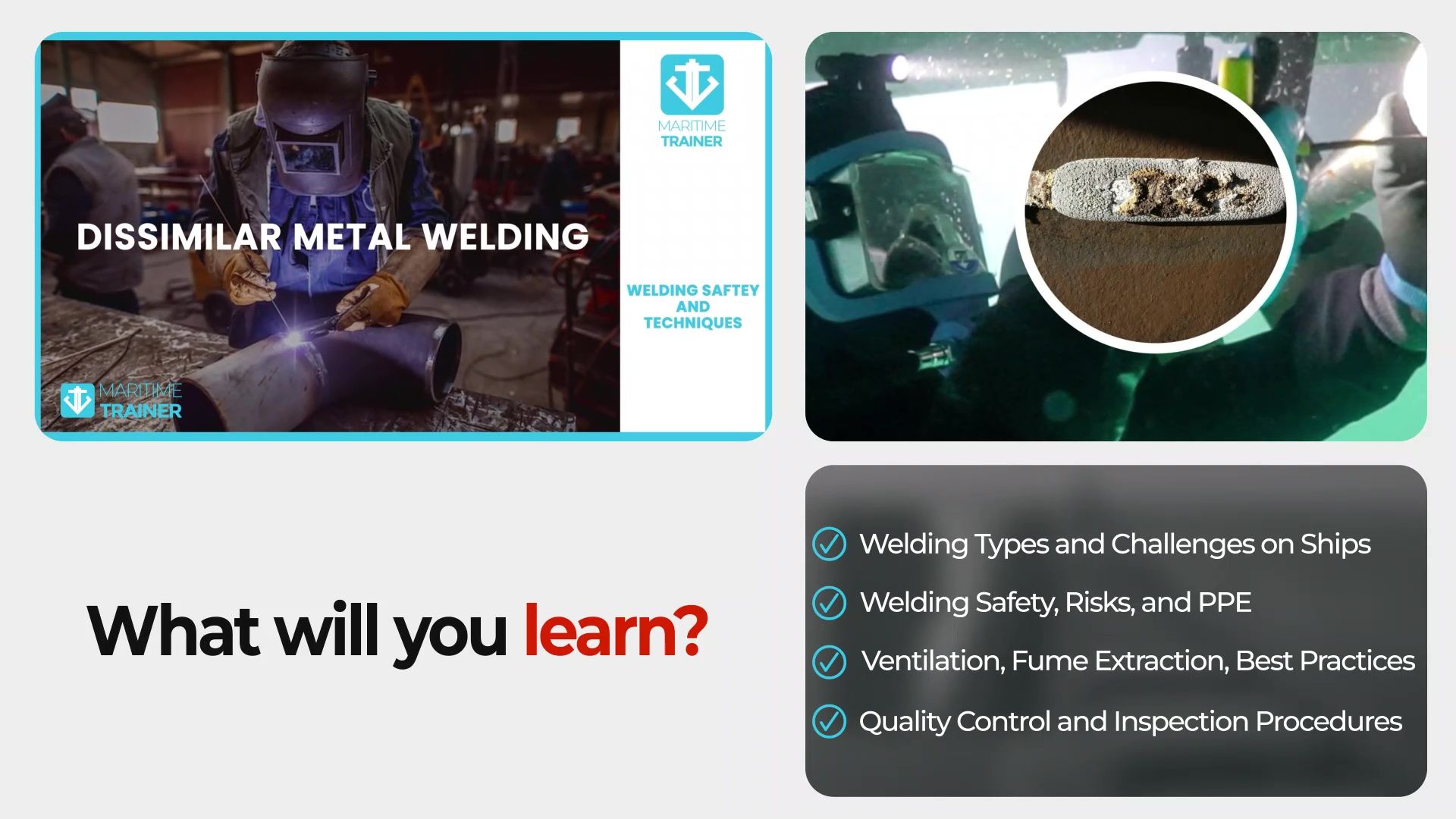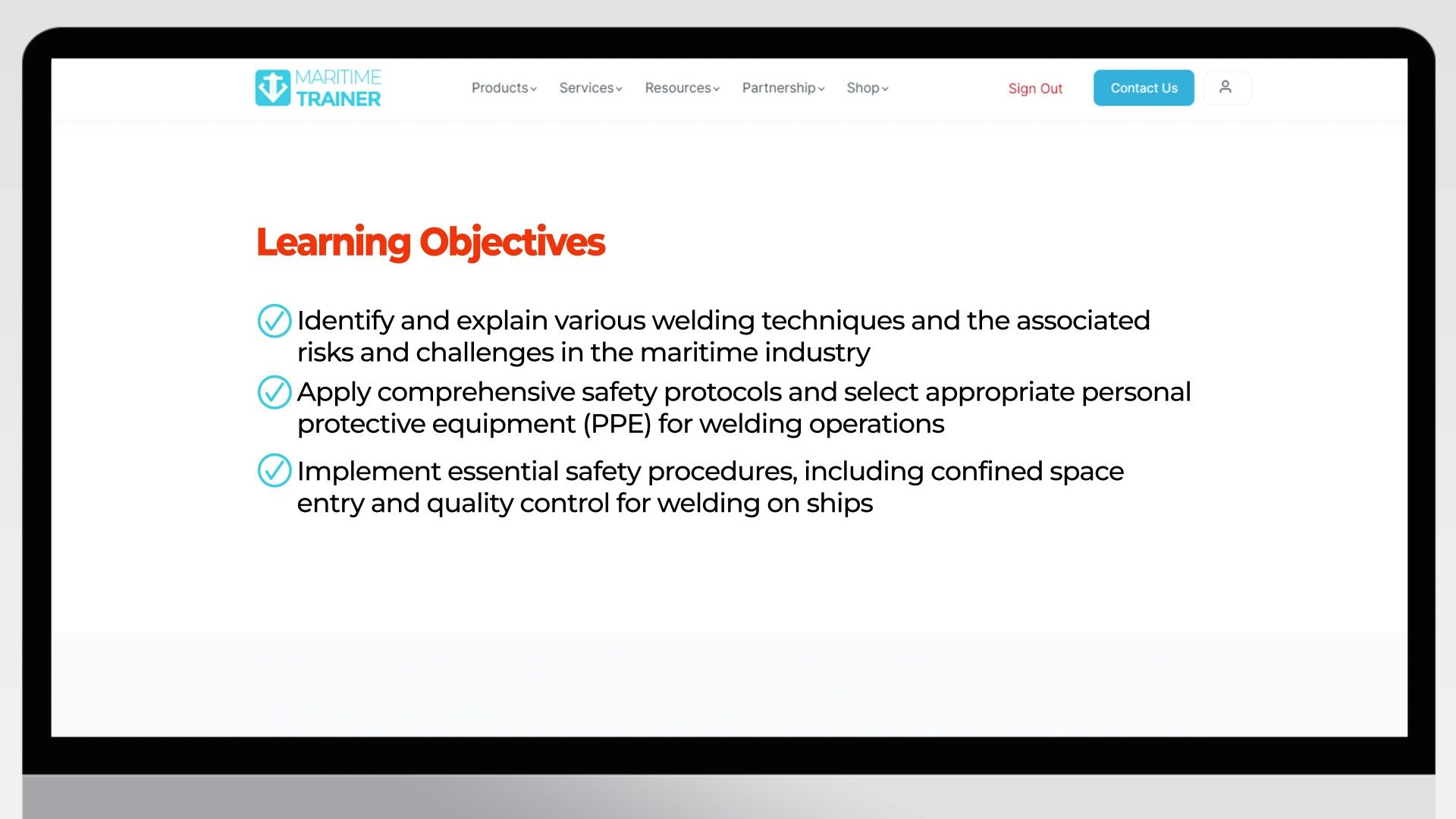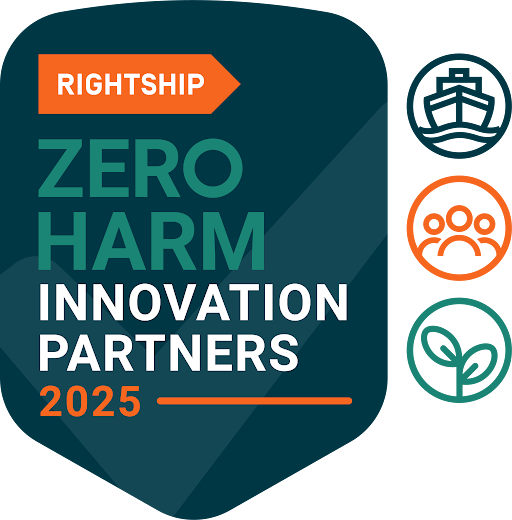Mastering Maritime Welding: Essential Safety and Techniques for Seafarers
In the maritime industry, welding is a crucial skill that directly impacts the safety and efficiency of ship operations. From ship construction to maintenance and repair, maritime professionals must master welding techniques and adhere to strict safety protocols. This blog will delve into the importance of welding in the maritime sector, the unique challenges faced, and how proper training can enhance safety and operational efficiency.
The Importance of Welding in Maritime Operations
Welding is integral to various maritime operations, including the construction of new vessels, structural repairs, and maintenance tasks. It ensures the structural integrity of ships, supports the installation of essential equipment, and plays a critical role in routine maintenance. Poor welding practices can lead to structural failures, costly repairs, and even catastrophic incidents at sea. Therefore, having well-trained personnel who can perform welding tasks safely and efficiently is vital for the maritime industry.
Unique Challenges of Maritime Welding
Key Safety Protocols and Best Practices

Safety is paramount in maritime welding operations. Proper training ensures that welders understand and implement critical safety measures, such as using the correct personal protective equipment (PPE), adhering to safety checklists, and following confined space entry procedures. Regular inspections and quality control of welded joints are also necessary to prevent potential failures and ensure long-lasting structural integrity.
The Role of Comprehensive Training
Comprehensive training is essential for maritime professionals to master welding techniques and safety protocols. Our e-learning course, Welding Safety and Techniques, is designed to equip seafarers with the knowledge and skills to safely and effectively perform welding tasks in a challenging maritime environment.
What You'll Learn:
- Welding Techniques: An in-depth understanding of various welding methods used in the maritime industry, including how to choose the proper technique for different tasks.
- Safety Protocols: How to implement essential safety measures to prevent accidents and ensure safe operations.
- PPE Selection: Guidance on selecting and using the appropriate personal protective equipment for different welding scenarios.
- Confined Space Procedures: Understanding the critical safety procedures for working in confined spaces on vessels.
- Quality Control: Techniques for inspecting and ensuring the quality of welded joints to maintain structural integrity.
Course Details:
- Duration: 26 minutes
- Language: English
- Skill Level: Operational
- Assessment: None
- Certification: N/A
Why This Course is Essential for Your Maritime Career

Our course is designed by industry experts with extensive experience in maritime operations. It provides practical, real-world insights that will help you navigate the unique challenges of maritime welding. By completing this training, you'll gain the confidence and expertise needed to contribute to safer and more efficient vessel operations.
Conclusion
Contact us

Approved & Certified by Bureau Veritas

We are proud to be member of


